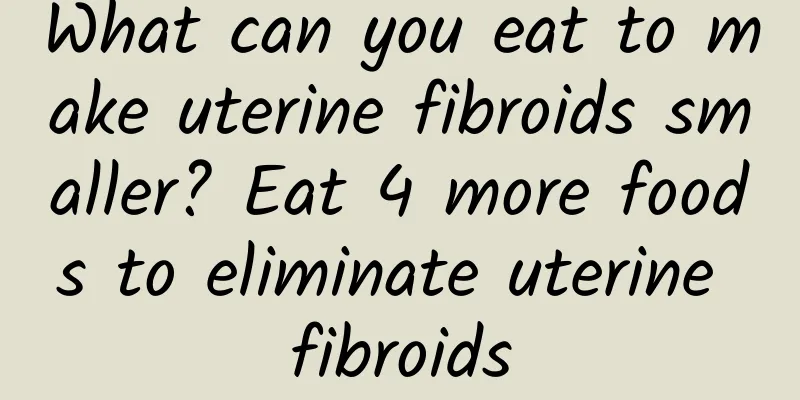Can I wash my hair after a painless abortion?

|
You can wash your hair one week after painless abortion, but pay attention to the water temperature and keep it warm. Use warm water when washing your hair to avoid the stimulation of cold water. Dry it with a towel immediately after washing to prevent catching a cold. The body is weaker after the operation and is prone to catching a cold, so be careful. 1. Precautions for washing your hair: In the first few days after a painless abortion, your body is relatively weak, so you need to keep warm. It is key to wash your hair with warm water, and avoid direct contact of cold water with the scalp, as this may cause physical discomfort or cold. After washing your hair, dry your hair immediately with a dry towel, and try to avoid blowing your hair for a long time. You can use a hair dryer on a low temperature setting to quickly dry your hair to reduce the risk of catching a cold. 2. Diet adjustment: Pay special attention to your diet after surgery, and try to choose light and nutritious food. Spicy, irritating and cold foods may be detrimental to your body's recovery and should be avoided as much as possible. Eat more protein-rich foods such as fish, meat, eggs and bean products, which help promote physical recovery. Fresh vegetables and fruits are rich in vitamins, which can enhance immunity and help the body recover faster. 3. Daily routine: Maintaining adequate rest time is very important for physical recovery. Avoid overwork after surgery, increase lunch break time appropriately, and ensure adequate sleep at night. Good daily routine habits help the body to repair itself and enhance physical fitness. 4. Personal hygiene: Keep the vulva clean and dry after surgery to avoid infection. Wash with warm water after each use of the toilet and gently dry with a clean towel. Avoid sexual intercourse within one month to avoid infection or affect physical recovery. 5. Psychological adjustment: After painless abortion, you also need to pay attention to your mental state. You can relax by listening to music, reading books, communicating with friends, etc. If you feel depressed or have psychological pressure, you may wish to seek help from a psychologist to ensure your physical and mental health. 6. Review and follow-up: Regular review after surgery is an important part of ensuring physical recovery. Follow the doctor's instructions for review to understand the physical recovery and promptly identify and resolve possible problems. If there are abnormal symptoms, such as persistent bleeding or severe abdominal pain, seek medical attention immediately. Through these methods, the recovery process after painless abortion will be smoother. Remember, your body is the capital of revolution, so you should take good care of yourself at all times! |
<<: How to maintain premature ovarian failure to recover
>>: Can I do eye suture implantation during menstruation?
Recommend
How to diagnose congenital absence of vagina
Experts told us that many patients with congenita...
Introduction to the prevention methods of uterine fibroids
Disease uterine fibroids prevention methods, uter...
Do women know what cervicitis is? What are the hazards of cervicitis in women?
Because of various reasons, female gynecological ...
Why is my period delayed and I have abdominal pain but it doesn't come?
If the delay is due to menstrual disorders and th...
Focus on 3 aspects of psychological care for patients with artificial abortion
Abortion surgery also causes great psychological ...
Is vomiting before menstruation a disease?
Is vomiting before menstruation a disease? Vomiti...
What are the symptoms of uterine fibroids?
Most patients with uterine fibroids will experien...
Fruits and vegetables not only prevent colorectal cancer and improve cardiovascular health, but also have "these" unexpected benefits!
There are many health benefits to eating fruits a...
What causes recurrent pelvic peritonitis?
Gynecological diseases are the most troublesome d...
Women should pay attention to the causes of dysmenorrhea
Women should be familiar with dysmenorrhea, which...
Too much! Schoolchildren spend 4 hours a day watching TV and surfing the internet during summer vacation
It's really "too much"! During the ...
What causes pelvic inflammatory disease?
The causes of pelvic inflammation are generally v...
What causes candidal vaginitis?
Vaginal candidiasis is a common vaginal inflammat...
Causes of irregular menstruation in women
What are the causes of irregular menstruation in ...
What medicine should be used for vulvar leukoplakia during pregnancy preparation? What should I do if there is white discharge from the lower body during pregnancy preparation?
Preparing for pregnancy is a process full of expe...









